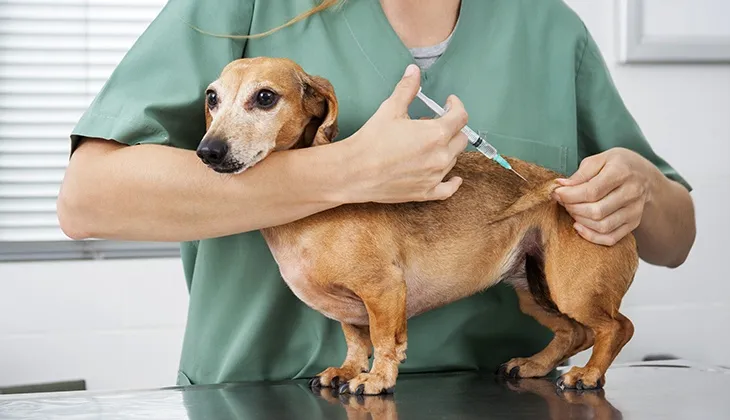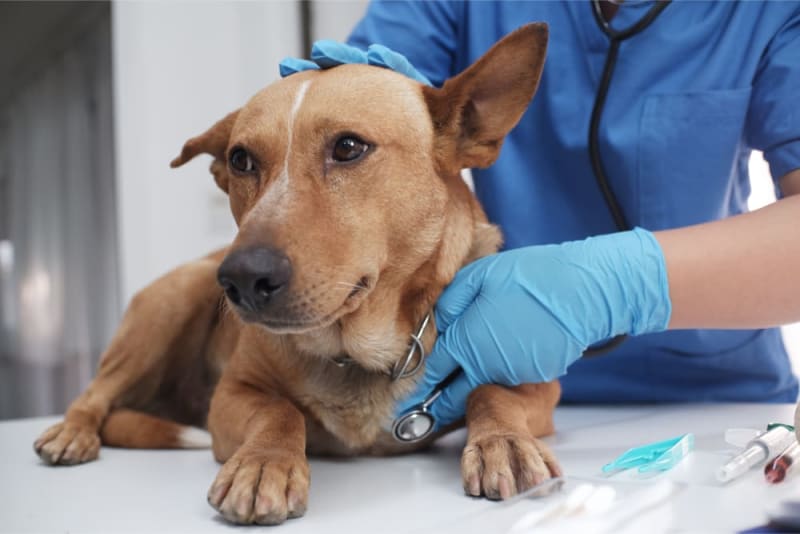Is Canine Parainfluenza Virus A Core Vaccine? Canine respiratory illnesses are caused by the extremely infectious ribonucleic acids virus known as canine parainfluenza virus (CPIV), which affects dogs worldwide. Our Douglasville veterinarians describe the signs, origins, and treatment options for canine parainfluenza tonight.
Is Canine Parainfluenza Virus A Core Vaccine? Canine Health

Canine influenza-like symptoms of breathing are also seen in dogs who have parainfluenza. These viruses, however, are distinct and call for different medications and immunizations. Kennels, places of refuge, and dog races are among the many locations where dogs congregate where both diseases are prevalent and readily transmitted.
Infectious tracheobronchitis, or "kennel cough," is a highly contagious viral lung illness that may be caused by the parainfluenza virus.
Read Also: Are German Shepherds Good With Kids? Family-Friendly German Shepherd
What signs of parainfluenza do dogs exhibit?
The following is a list of signs and symptoms of canine parainfluenza virus infections. The immune system of the host and the age of the infected dog may affect how severe or intense these symptoms are:
What puts dogs at risk for parainfluenza?
Dogs may get parainfluenza by their breath, which is a virus. Because of this, it is a very infectious illness, particularly in dogs that live with or interact with other dogs.
The breathing-related signs of the parainfluenza virus are similar to those of canine distemper, including inflammation of the trachea, bronchial tubes, and larynx, as well as a dry, hacking cough. Puppies and elderly adult dogs with weakened immune systems are more vulnerable. Toy breeds have been more prone to pneumonia because to the thick secretions that are generated when they have throat inflammation.
The virus may remain in the air for up to two weeks after the illness has cured.
How can one diagnose parainfluenza?
The veterinary will need a thorough medical history from you. Boarding kennels, grooming parlors, and other dog-crowded areas are easy hubs for the parainfluenza virus to spread. Within two to four weeks after your family pet's initial symptoms manifest, you must notify us of your pet's location.
It will be necessary to get a medical profile and immunization history. Give as much information as you can since every interaction with other dogs, regardless of the setting, may contribute to the infectious process.
Along with doing diagnostic procedures like as blood tests, cultures, and testing of fluid and tissue samples, the veterinarian will also conduct a physical examination. It can also be necessary for him to use imaging methods like radiography (x-ray) to ascertain the presence of any masses or parasite involvement. A treatment plan will be created and put into action when all test results have been received and examined.
You Must Read: When Does A Mini Schnauzer Stop Growing
How is parainfluenza in dogs treated?

Unless the condition is serious, your veterinarian is unlikely to prescribe hospitalization due to the high contagiousness of the illness to other dogs. Your veterinarian may propose management measures instead of hospitalization, most likely consisting of the following:
Guidelines for maintaining good cleanliness, nutrition, and nursing care
- Suggestions for remedial measures for any environmental elements believed to be involved
- Cough suppressants with codeine derivatives should only be used to treat chronic, unresponsive coughs.
- Antibiotics such these antibiotics, quinolones, chloramphenicol, and tetracycline may be required in severe chronic instances; the right antibiotic
- prescription will probably be selected depending on the outcomes of the cultures that are obtained and examined.
- A bronchodilator pretreatment followed by aerosolization treatments is one possible course of therapy.
Is there a parainfluenza vaccination for dogs?
Indeed, there is. Dogs between the ages of 6 and 8 weeks are given the DHPP (Distemper, Hepatitis, Parainfluenza, Parvovirus) vaccination at Kay Animal Hospital. Afterwards, boosters are given to patients who are 10–12 weeks old, 14–16 weeks old, and 12–16 months old. It is thus strongly advised that you arrange for your dog's yearly shots and periodic checkups in order to safeguard them from parainfluenza and a variety of other illnesses. Our vaccination schedule is available here.
Advantages of Parainfluenza Vaccination
One of the most important defenses against canine parainfluenza is vaccination. The parainfluenza vaccination for dogs greatly lowers the chance of illness and the problems that come with it. Principal advantages consist of:
Infection prevention: Lowers the risk of catching the virus.
Severity reduction: Should a vaccinated dog get the virus, the symptoms will usually be less severe.
Herd immunity: Assists in defending neighborhood dogs, particularly those who lack vaccinations or have impaired immune systems.
You May Also Like: What You Need To Know About Canine Handler NYT Crossword?
FAQs: Is Canine Parainfluenza Virus A Core Vaccine
Is canine parvovirus a core vaccine?
Is Canine Parainfluenza Virus A Core Vaccine? It is advised that all canines have this vaccination, which is regarded as "core."
What are the core vaccines for dogs?
Regarding Dogs: Core vaccinations include those against canine rabies, canine hepatitis, distemper, and parvovirus. Vaccinations that are not core are administered based on the dog's exposure risk. Vaccines against Leptospira, Borrelia burgdorferi, and Bordetella bronchiseptica are among them.
What are the three core puppy vaccines?
The DHP (also known as DAP) vaccine, which is often given in combination, protects against distemper, hepatitis (or adenovirus-2), and parvo.
Is canine parainfluenza a core vaccine?
The CPIV immunization should be begun in pups between the ages of 6 and 8 weeks; it is regarded as noncore (only recommended in animals at risk).
Is Canine Distemper a core vaccine?
A combination vaccination, also referred to as DAPP, DA2PP, or something similar, includes the canine distemper vaccine in addition to shielding dogs against a few other prevalent canine viruses. It is advised that all canines have this vaccination, which is regarded as "core."